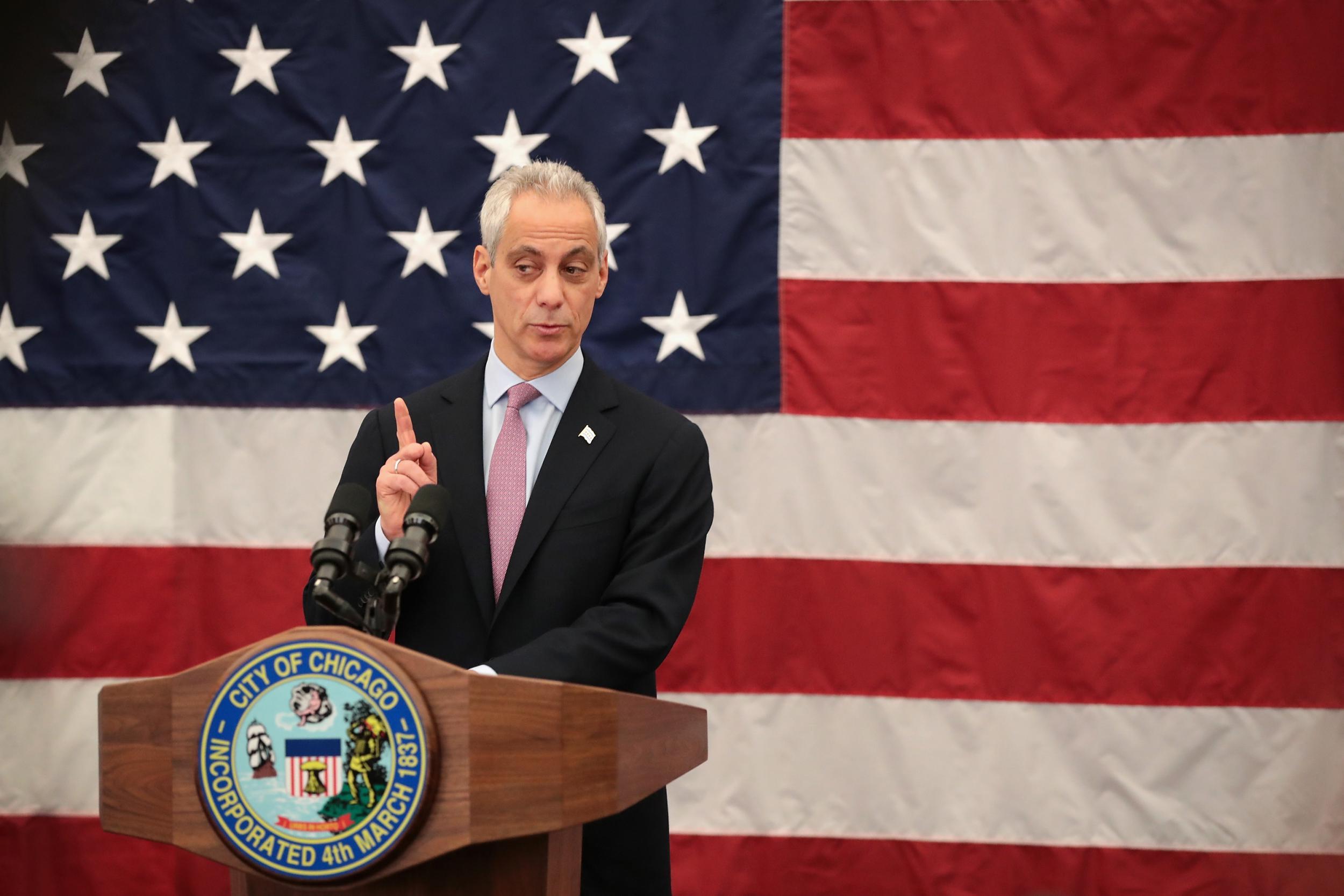Chicago sues Trump administration for withholding funds from sanctuary cities
'Chicago will not let our residents have their fundamental rights isolated and violated,' says Mayor Rahm Emanuel

Your support helps us to tell the story
From reproductive rights to climate change to Big Tech, The Independent is on the ground when the story is developing. Whether it's investigating the financials of Elon Musk's pro-Trump PAC or producing our latest documentary, 'The A Word', which shines a light on the American women fighting for reproductive rights, we know how important it is to parse out the facts from the messaging.
At such a critical moment in US history, we need reporters on the ground. Your donation allows us to keep sending journalists to speak to both sides of the story.
The Independent is trusted by Americans across the entire political spectrum. And unlike many other quality news outlets, we choose not to lock Americans out of our reporting and analysis with paywalls. We believe quality journalism should be available to everyone, paid for by those who can afford it.
Your support makes all the difference.Chicago has sued the Trump administration over its threats to withhold funding from sanctuary cities.
The lawsuit, filed in US District Court, claims the administration is forcing the city to choose between its constitutional rights and federal funding for law enforcement.
Chicago Mayor Rahm Emanuel announced his plans to sue at press conference last week, saying: "Chicago will not let our residents have their fundamental rights isolated and violated, and Chicago will never relinquish our status as a welcoming city."
Attorney General Jeff Sessions recently declared that the Justice Department would withhold federal grant money from so-called “sanctuary cities” – localities that refuse to comply with federal immigration enforcement.
The Justice Department has demanded cities allow immigration agencies unlimited access to their jails, and provide 48 hour’s notice before releasing anyone suspected of violating immigration laws.
Mayors like Mr Emanuel, however, have taken issue with the Trump administration's increased immigration enforcement activity. In particular, the leaders of many sanctuary cities object to the targeting of undocumented immigrants without criminal records.
"We're not going to actually auction off our values as a city, so Monday morning the City of Chicago is going to court; we're going to take the Justice Department to court based on this," Mr Emmanuel told local news station WLS.
He added: "We find it unlawful and unconstitutional to be, as a city, coerced on a policy."
Missing out on the federal Edward Byrne Memorial Justice Assistance Grants could potentially cost sanctuary cities millions of dollars. Chicago alone was slated to receive $3.2m from the grant program this year to purchase new police equipment.
The funding is especially sensitive in Chicago, which Mr Trump frequently criticises for its high crime rate. The Justice Department said in a statement that more Chicagoans were murdered last year than residents of Los Angeles and New York combined.
"It's especially tragic that the mayor is less concerned with that staggering figure than he is spending time and taxpayer money protecting criminal aliens and putting Chicago's law enforcement at greater risk,” Justice Department spokeswoman Sarah Isgur Flores said.
This is not the first time the Trump administration has been taken to court over its sanctuary city policy. Last month, the court blocked a broader executive order that would have denied even more federal funds to these cities.
Judge William H Orrick sided with Santa Clara County, the city of San Francisco, and other jurisdictions, ruling that denying such funds could be unconstitutional.
The White House condemned the decision as an “egregious overreach”.
"Today's ruling undermines faith in our legal system and raises serious questions about circuit shopping,” the White House said in a statement. “But we are confident we will ultimately prevail in the Supreme Court, just as we will prevail in our lawful efforts to impose immigration restrictions necessary to keep terrorists out of the United States.”
Join our commenting forum
Join thought-provoking conversations, follow other Independent readers and see their replies
Comments